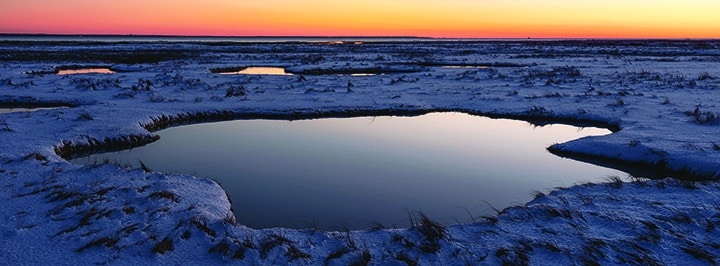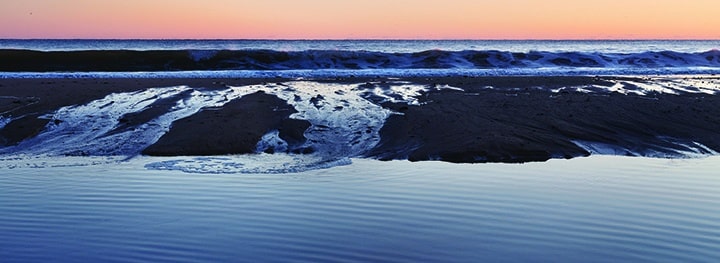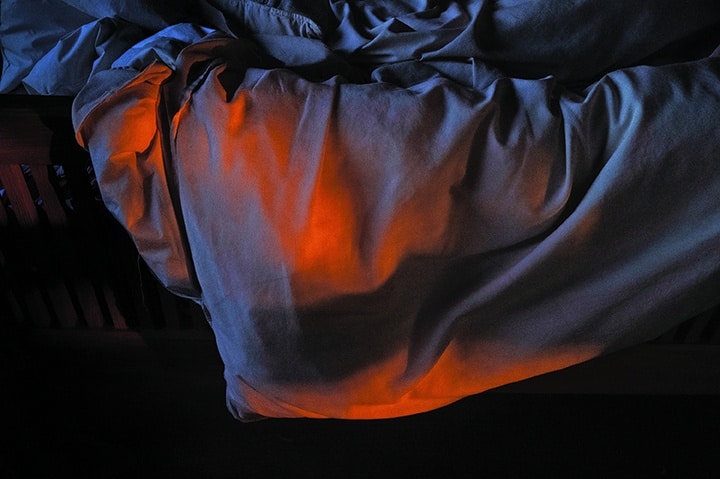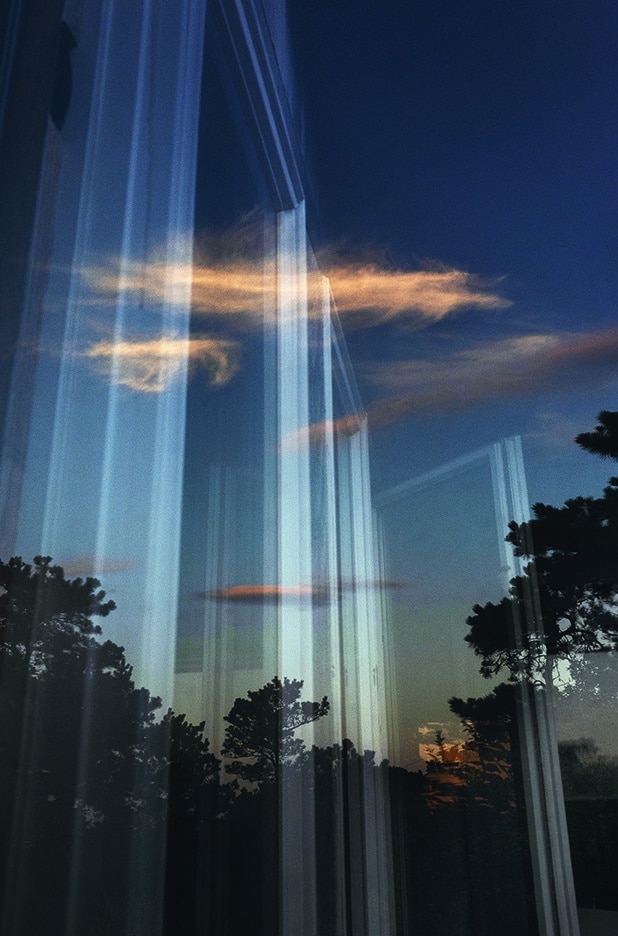Clouds by Rebecca Norris Webb, 2020
by Rebecca M. Alvin
When the pandemic struck in 2020 the dominant energy was a confusing blend of fear, anxiety, wishful thinking, denial, panic, and anger. The lockdown sent many into hiding in their apartments and many others fled the cities they loved to hunker down in the woods, in the mountains, in the dunes, in places like Vermont and New Hampshire and Cape Cod. We each survived with our pods, those small groups of people who were our entire social lives in that time period. For some the isolation was devastating. For others, it brought a quiet realization of how alone we all are, how alone we have always been and always will be. But what to do with that angst and honest existential reflection?

For many creative people the quarantine period was one of generative expansion. And we’re just beginning to see the fruits of that time, the works that have come out of an unexpected and rapid shift in perspective. For photographer Alex Webb, it meant a drastic change in his photographic interests. Since childhood, Webb has been coming to Cape Cod, and he grew up on the East Coast, with the ocean as a constant part of the backdrop. A successful street photographer, Webb has traveled the world creating bodies of work focused on urban scenes in vivid color, photographs taken in India, Istanbul, Cuba, Haiti, and the streets of Mexico. But he’d never focused his lens on the stunning natural landscape of Cape Cod until he and his wife, photographer and poet Rebecca Norris Webb, relocated to Wellfleet to escape the dire Covid-19 infection rate in their Brooklyn neighborhood.

Rebecca had also never photographed Cape Cod. Having come of age in South Dakota, with the powerful influence of the Badlands and the imagery and light of the American West, she says she’d actually deliberately avoided it for some time, “until I felt like this landscape really inhabited me.” Instead, her time spent on Cape Cod was focused on writing, even as her work often features an interplay between poetry and photography. But quarantine made it hard to write, as grief and fear often do.
“I was up in my writing room,” she recalls. “Because it’s got windows on three sides, it’s perfect for someone like me that spends as much time looking as writing. But I have to say, I’d go up there every day, and I was looking out the window waiting for the words that didn’t come. I, like a lot of people, was just so anxious. I just couldn’t think. I couldn’t put my thoughts into words.” At this point, Alex was out photographing bodies of water using a panoramic camera, something he hadn’t often used in his work that would eventually produce large, wide prints that reflect the profound openness of the landscapes he was capturing: tidal flats, marshlands, the pools of water on the sand that seem to evaporate almost as soon as they form on the vast, empty beaches of Wellfleet.
“It was twilight,” Rebecca continues. “And I saw a reflection of my writing lamp reflected in one of the windows of my writing room. And it looked somewhat like a beacon. And that was the first time. I went in and I grabbed my camera and I took my first photograph. And in a way, I felt like I was joining Alex, but on the other side of the glass. And I began to realize that would be a good way for me to really understand this region and to photograph the interior of the house, predominantly. And so I began to photograph the waves of light as they wash through our house of many windows through all four seasons.”
It’s that multifaceted aspect of waves that connects the Webbs’ photographs in interesting, sometimes surprising ways. While waves on a beach can demonstrate the simultaneous chaos and violence of nature and also its ever-reliable, persistent indifference to changes in human conditions, Alex’s photographs are meditative and quiet, showcasing everything that is calming about waves. But Rebecca’s non-oceanic waves are not calm. They are taken from inside. They utilize wave patterns in bunched up linens, and feature naturally occurring superimpositions of inner and outer environments that create otherworldly illusions of light beams. They reveal the man-versus-nature conflicts inherent in a photograph of nature, shot through a window that reflects the image of an electric lamp inside.
Alex’s street photography background utilized a more mobile shooting process, whereas here he was using a tripod and moving more slowly. At the same time, both approaches emphasize capturing the moment, that one instant where the image comes together, whether it is a picture of children running on a beach in the Caribbean or the one or two seconds before the composition of a shoreline transforms into something entirely different as the tide comes in or out. “It wasn’t that dissimilar necessarily from wandering the street,” Alex says.
The couple have been married 25 years now and say the secret to successful collaborations has been their mutual insistence on working on their own distinct artistic projects, seperately—each having produced multiple books of photography and writing on their own—and then coming together for collaborations like this one in between.
“We’ve realized, over probably the 15 years we’ve been collaborating, that that balance is essential for us,” Rebecca explains. Alex agrees.

These images put together in the book they collaborated on, their sixth such collaboration, The Waves, reveal a complex story of pandemic loneliness, tension, and acceptance of the groundlessness many only first realized during that period. A selection of these works, curated by Christine McCarthy, will be shown together in a show at the Provincetown Art Association and Museum (PAAM) opening this week.
The Waves will be on exhibit at PAAM, 460 Commercial St., Provincetown, April 12 – May 27. There is an opening reception on Friday, April 19, 6 p.m. and the artists will also give a talk entitled TWO LOOKS: Alex Webb & Rebecca Norris Webb Photographs, Saturday, May 18 at 2 p.m. That event is free with museum admission. For more information call 508.487.1750 or visit paam.org.











